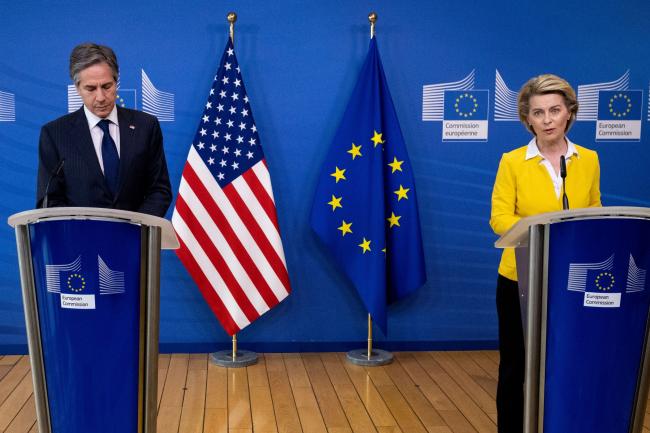Strengthening Europe in the digital domain - Franco-German reflections on digital sovereignty

Practical information
There is "no strategic autonomy without digital sovereignty", declared Charles Michel, President of the Council of the European Union in February 2021. In this logic, the European Commission calls for a more autonomous Europe in security-related areas such as digital policy and data infrastructures.

With the COVID-19 pandemic, the urgency to develop an ambitious European digital strategy is even more acute. Such a strategy must enable the EU to compete economically with the two digital superpowers of China and the United States, while defending its own security interests. Yet Europeans seem to lack a common definition of digital sovereignty and what it encompasses.
The aim is to examine Franco-German cooperation in the digital field through cloud computing and data infrastructures. For businesses, governments and individuals, access to trusted cloud computing services plays a central role, instrumental in facilitating innovation. It is a key part of the digital sovereignty agenda. The second panel will discuss European data infrastructures such as the Gaia-X project, which can contribute to Europe's goal of digital sovereignty.
Restricted event. By invitation only.
8:30 am - 10:00 am Panel 1: “Defining digital sovereignty: objectives and challenges”
Introduction: Gunther Krichbaum, Member of the Bundestag, Chairman of the Committee on European Affairs
Moderation: Claire Demesmay, Director of the France / Franco-German relations program, DGAP
Speakers:
- Marco-Alexander Breit, Head of Unit for Artificial Intelligence, Federal Ministry of Economy and Energy
- Julia Pohle, Senior Researcher “Politics of Digitalization”, Berlin Social Science Center (WZB)
- Michel Rao, Project Director at the Directorate General of Enterprises, Ministry of the Economy, Finance and Recovery
10 a.m. - 10.15 a.m. Break
10:15 am - 11:30 am Panel 2: “Gaia-X and beyond: towards a European alliance for industrial data, cloud and edge computing”.
Introduction: Alice Pannier, Head of the Geopolitics of Technologies program, IFRI
Moderation: Tyson Barker, Director of the Technology and Global Affairs program, DGAP
Speakers:
- Servane Augier, Deputy CEO, 3DS Outscale
- Pierre Chastanet, Head of Cloud Computing and Software, DG Connect, European Commission
- Jakob Greiner, Director of European Regulation, Deutsche Telekom AG
- Thomas Niessen, Managing Director, Trusted Cloud Competence Network and Certification and Licensing Coordinator, Gaia-X Working Group
Roundtable organized jointly by Ifri (Geopolitics of Technology Program and Cerfa) and the German Institute for Foreign Policy - DGAP
The first panel will be held in French and German with simultaneous translation.
The second panel will be held in English only.
Find out more
Europe in the Geopolitics of Technology: Connecting the Internal and External Dimensions
To respond to growing global competition, the EU has made notable progress on the internal dimension of technology policy over the past 3 years. It is now also seeking to adapt its foreign policy – from the transatlantic relationship to global partnerships – to technological challenges.
Related Subjects
Other events

New geopolitical realities of the Arctic
Donald Trump’s announcement in January 2025 of his intention to seize Greenland has brought the Arctic back to the forefront of great power rivalries.

Doing politics in African cities: actors, causes and forms of urban social mobilization
From Maputo to Nairobi and from Lagos to Dakar: recently, African cities have been the theatre of mobilizations by groups of young protesters.







